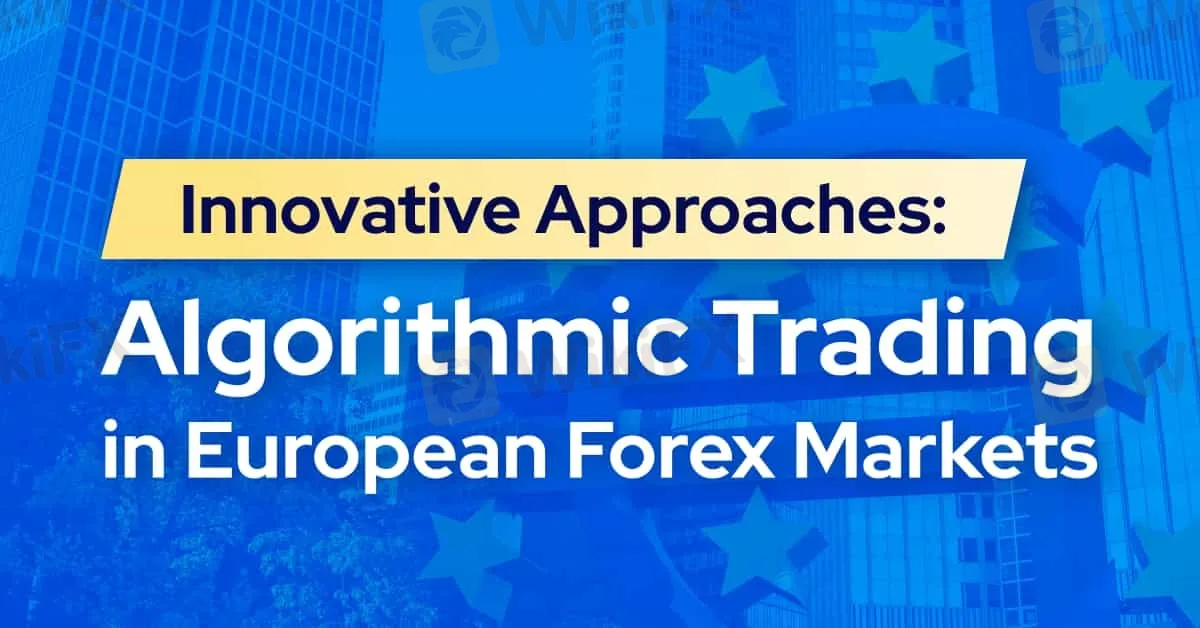简体中文
繁體中文
English
Pусский
日本語
ภาษาไทย
Tiếng Việt
Bahasa Indonesia
Español
हिन्दी
Filippiiniläinen
Français
Deutsch
Português
Türkçe
한국어
العربية
Innovative Approaches: Algorithmic Trading in European Forex Markets
Abstract:In the fast-paced realm of forex trading, hedge funds operating in European markets are increasingly turning to algorithmic trading strategies to gain a competitive edge. Algorithmic trading, also known as algo-trading or automated trading, involves the use of computer algorithms to execute trades automatically according to predefined criteria. This innovative approach offers hedge funds the potential to capitalize on market inefficiencies, execute trades with precision, and manage risk more effectively in dynamic currency markets.

In the fast-paced realm of forex trading, hedge funds operating in European markets are increasingly turning to algorithmic trading strategies to gain a competitive edge. Algorithmic trading, also known as algo-trading or automated trading, involves the use of computer algorithms to execute trades automatically according to predefined criteria. This innovative approach offers hedge funds the potential to capitalize on market inefficiencies, execute trades with precision, and manage risk more effectively in dynamic currency markets.
The Rise of Algorithmic Trading
The adoption of algorithmic trading in European forex markets has been driven by technological advancements, evolving market dynamics, and the pursuit of alpha generation. Hedge funds recognize the limitations of traditional manual trading methods, which may be prone to human biases, emotional decisions, and execution delays. Algorithmic trading, on the other hand, offers several advantages:
Speed and Efficiency: Algorithms can execute trades at lightning-fast speeds, capitalizing on fleeting market opportunities and minimizing slippage. This speed advantage is particularly crucial in the fast-moving forex market, where split-second decisions can make a significant difference in trading outcomes.
Precision and Consistency: Algorithmic trading removes human emotions from the trading process, ensuring trades are executed based on predefined rules and criteria. This leads to more disciplined and consistent trading decisions, free from the influence of fear, greed, or other cognitive biases.
Scalability and Adaptability: Algorithms can be designed to trade across multiple currency pairs and timeframes, providing hedge funds with scalability and flexibility in their trading operations. Moreover, algorithms can adapt to changing market conditions and adjust trading strategies accordingly, helping hedge funds stay agile in dynamic forex markets.
Technological Innovations
Advancements in technology, particularly in the fields of artificial intelligence (AI) and machine learning (ML), have further propelled the evolution of algorithmic trading strategies. Hedge funds are leveraging AI and ML algorithms to analyze vast amounts of market data, identify patterns, and develop predictive models for forex trading. These advanced algorithms can learn from historical data, continuously refine their trading strategies, and adapt to evolving market dynamics in real-time.
Introducing WikiFX: Your Algorithmic Trading Partner
Amidst the proliferation of algorithmic trading in European forex markets, hedge funds seek reliable partners to support their algorithmic trading initiatives and enhance their technological capabilities. Enter WikiFX, a leading provider of algorithmic trading solutions and technological innovations for the financial industry.
WikiFX offers a range of services tailored to the needs of hedge funds engaged in algorithmic trading in European forex markets, including:
Algorithm Development: Collaborate with WikiFX's team of quantitative analysts and software developers to design, backtest, and optimize custom algorithms tailored to specific trading objectives and risk preferences.
Data Analysis: Access comprehensive market data, historical price feeds, and economic indicators to inform algorithmic trading strategies and enhance predictive modeling capabilities.
Technology Integration: Leverage WikiFX's cutting-edge technology infrastructure, including low-latency trading platforms, high-performance servers, and connectivity solutions, to execute algorithmic trades with speed and reliability.
Conclusion
As hedge funds in European forex markets embrace algorithmic trading strategies to gain a competitive edge, the role of technology in shaping the future of forex trading becomes increasingly prominent. By harnessing the power of algorithms, leveraging technological innovations, and partnering with trusted providers like WikiFX, hedge funds can unlock new opportunities for alpha generation, optimize trading performance, and navigate the complexities of dynamic currency markets with confidence.

Disclaimer:
The views in this article only represent the author's personal views, and do not constitute investment advice on this platform. This platform does not guarantee the accuracy, completeness and timeliness of the information in the article, and will not be liable for any loss caused by the use of or reliance on the information in the article.
Read more

10 Blacklisted Brokers on WikiFX: Unveiling the Rogue Players
As 2024 draws to a close, the financial landscape remains fraught with deceptive practices and fraudulent brokers. WikiFX, a trusted broker regulatory query platform, has compiled a list of the 10 blacklisted brokers for December. These entities have earned their spot due to violations such as being unregulated, engaging in scamming activities, or forbidding client withdrawals. Here's a closer look at the brokers to avoid at all costs.

Will Gold Shine Brighter in 2025?
Gold is poised for significant gains in 2025, with experts predicting its price to climb between US$2,900 and US$3,000 per ounce or potentially higher. Analysts attribute this optimistic outlook to sustained gold purchases by central banks, ongoing geopolitical tensions, declining global interest rates, and persistent economic uncertainties. These factors, coupled with gold’s status as a hedge against inflation, underline the precious metal’s appeal in volatile times.

Ringgit Remains Flat Amid Holidays, US Debt Concerns Loom
The Malaysian ringgit began the week steady against the US dollar, showing little movement due to a lack of market catalysts during the holiday-shortened trading week.

Will Inflation Slow Down in the New Year 2025?
Will inflation slow down in 2025? Experts weigh in on projections, economic policies, and potential impacts, offering insights into what the new year may hold.
WikiFX Broker
Latest News
Japan to Take Action to Stabilize the Yen
Ringgit Remains Flat Amid Holidays, US Debt Concerns Loom
Taurex: Is it Safe to Invest?
Vietnamese Police Bust $1.2 Million Crypto Fraud Case
WikiEXPO Global Expert Interview: Loretta Joseph——Unlock the forefront of digital finance
XTB Receives Licenses to Operate in Indonesia & UAE
SEBI Bans Big "Finfluencers for Misleading Investors"
WikiFX New Year Bash: Chance to Win 70 USDT
Malaysia’s Securities Commission Enforces Ban on Bybit & Its CEO
Will Gold Shine Brighter in 2025?
Currency Calculator






